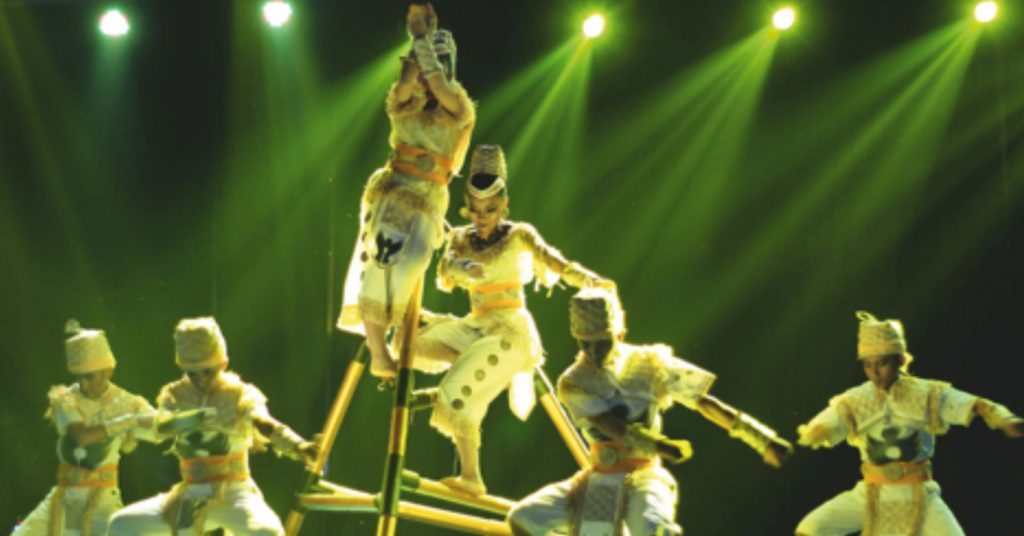Culture and Indonesia’s role in BIMP-EAGA East ASEAN Growth Zone
Brunei Darussalam-Indonesia-Malaysia- Philippines Cooperation East ASEAN Growth Area (BIMP-EAGA) was formally established at the 1st Ministerial Meeting in Davao City, Philippines on March 26th, 1994. The cooperation aims to improve welfare and economic growth of community in the border regions of BIMP-EAGA countries. Business actors are expected to be the driving force of the cooperation while the government acts as regulator and facilitator. The Indonesian regions that are members of BIMP-EAGA are West Kalimantan, East Kalimantan, South Kalimantan, Central Kalimantan, North Sulawesi, Southeast Sulawesi, South Sulawesi, Central Sulawesi, West Sulawesi, Gorontalo, Maluku, North Maluku, Papua and West Papua.
The inhabitants of the above areas are the indigenous Dayak community in Borneo, Bugis and Makassarese community in Sulawesi and Melanesians in Maluku Island and Papua. In general, the culture of these ethnic groups is divided into two based on agricultural and maritime traditions. The Dayak community represents the agrarian culture which is very strong in the tradition of shifting cultivation (Outer Island Agriculture-term used by anthropologist Clifford Geertz). There is a well-known public motto in the Dayak community “Menteng Ueh Mamut” which means “someone must be brave and strong and never retreat”. While the Bugis-Makassarese community and Melanesian people are very strong in the character of maritime tradition. For instance, the sasi system (traditional management of fishery resources) in Maluku is still practiced to preserve the marine resources and its sustainability. The phinisi (sailing vessel) has become a pride of the Bugis and Makasarese community. Still, there are many other aspects of culture that need to be developed.
In the context of cultural development it is appropriate for Indonesia to encourage cultural advancement in the eastern ASEAN region as a strategic policy to support Indonesia’s Law No. 5 Year 2017 on Culture Advancement. It will support BIMP-EAGA’s vision to promote tourism in the ASEAN and eastern ASEAN region. Indonesia’s Law No. 5 Year 2017 on Culture Advancement is proof of Indonesia’s concern in national culture development in the midst of globalization and in making culture an investment to build the future to realize Indonesia’s national goals as mandated by the 1945 constitution.
One objective of the Law No. 5 Year 2017 is to handle cultural activities in a more systematic manner. To meet this, the Ministry of Education and Culture, Directorate General of Culture designed a new initiative, Indonesiana – a platform where the structure of relationship between organizers of cultural activities in Indonesia would be built on mutual cooperation. In the future through the Indonesiana Platform, the parties who collaborate together can get facilities to improve the effectiveness and efficiency of their cultural activities.
Some of the events that will be tapped for the platform are: Vula Donga Festival in Central Sulawesi; Palu Solande Percussion in Central Sulawesi; Bunyi Bungi Festival in Sigi District, Central Sulawesi; Cerita Dari Blora Festival in Central Java; Seni Multatuli Festival in Banten; Saman Budaya Festival in Aceh; Tenun Nusantara Festival in Tapanuli, North Sumatera; Fulan Fehan Festival in Belu, East Nusa Tenggara; Gamelan International Festival in Solo, Central Java and Silek Art Festival in West Sumatera.
One collaboration between local and international artists was conducted at the Bungi Sound Festival last August 30th –September 1st 2018, in Sigi Regency, Central Sulawesi with the theme “Reinterpreting Bungi Culture”. The festival featured 15 local and foreign art communities that participated in performing contemporary art. Artists came from Indonesia: Central Sulawesi, Bali, Aceh, Makassar, and overseas; Austria, Japan, and Senegal.
The promotion of culture depends on the community’s human resources such as its indigenous peoples and informal leaders. These people are valuable to the cultural development of the east ASEAN region to realize political sovereignty and economic independence. The other objects of cultural development in the east ASEAN region consist of its folklore, literature, custom, rite, local knowledge, traditional technologies, art, and folk games. However, this does not mean commercialization of cultural resources, but protection in the liberalization era of cultural traditions and cultural resources. Without conservation the culture will gradually lose its essence in the midst of globalization.
The Indonesian government through its Ministry of Education and Culture Republic of Indonesia, feels it necessary to support a cultural strategy to address the challenges of development and globalization. Let us strive and cooperate in the cultural promotion of each region and country to realize sustainable development.

